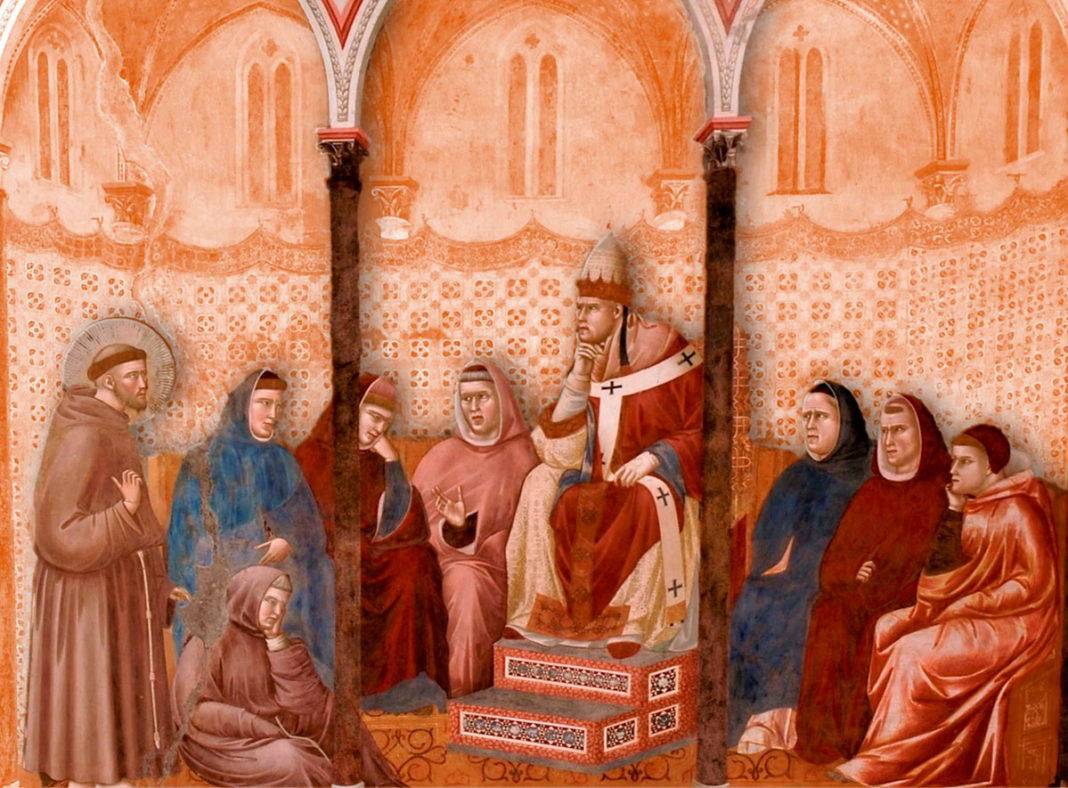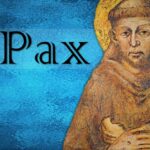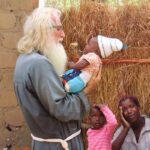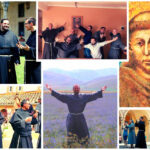7. The Preaching Activities of the Friars
Reports from other religious of the time, especially the Benedictines, confirm that the friars had the habit of preaching on feast days and Sundays in particular. On these days, they made a point to visit parishes, or be present among the faithful in other assemblies where they easily reached the hearts of the people, because the words they spoke were supported by a mortified and holy life.
In general, we can say that their preaching was characterized by humility and smallness; or what in Latin is minoritas. This was because Francis had warned the brothers not to claim personal ownership of the gift of the ministry of the Word. This could be a problem if someone used preaching as a means to obtain glory for himself. Instead, Francis had a fondness for those who did not seek such glory and who, after the word was preached, withdrew without waiting for adulation from others.
However, the clericalization of the Order had its share of problems, because when the preaching of the Word was combined with sacramental ministry, the friars came into conflict with the diocesan clergy. Some friars wanted to solve this problem by obtaining privileges, but Francis did not agree: “I strictly command all the brothers through obedience, wherever they may be, not to dare to ask any letter [of privilege] from the Roman Curia, either personally or through an intermediary, whether for a church or another place or under the pretext of preaching or the persecution of their bodies” (Testament 25; FF 123).
This was not the case with other religious movements. If they preached erroneous doctrines, the Church could disapprove of them and at the same time, brand them as heretics. In the case of Francis, preaching depended not only on the permission of the bishop, but also on that of the local pastor, without whose approval one did not dare preach.
Over time, the preaching activities of the friars also had a concrete impact in expanding the presence of Franciscan communities to many European countries. This apostolic service got underway while St. Francis was still alive, during the first years of the Order’s existence and contributed to its growth. One example, among others, illustrates this situation well, namely, the friars were present throughout most of Italy from 1207 to 1217. From 1217 onwards they expanded into many important European countries: By 1217, they were in France and Spain; between 1219 and 1221 they were in Dalmatia and Hungary; by 1221, Germany; and by 1224, England.
Friar Dariusz MAZUREK, General Delegate for Missionary Animation
Based upon:
DI FONZO W., ODOARDI J., POMPEI A., Bracia Mniejsi Konwentualni. Historia i życie (1209-1976), Niepokalanów 1988.
ESSER K., El testamento de san Francisco de Asís, Oñate (Guipúzcoa) 1981.
ESSER K., La orden franciscana. Orígenes e ideales, Oñate (Guipúzcoa) 1976.
ESSER K., Temas espirituales, Oñate (Guipúzcoa) 1980.
IRIARTE DE ASPURZ L., Vocación franciscana, Valencia 1975.
MICÓ J., Los hermanos vayan por el mundo. El apostolado franciscano, SelFr 62 (1992) 213-238.
Pisma świętego Franciszka i świętej Klary, Warsaw 1992.
For more information about missions, go to Facebook at:
https://www.facebook.com/AnimazioneFrancescana/
See also the Instagram account of the Mission Secretariat at:
https://www.instagram.com/sgam_ofmconv/














